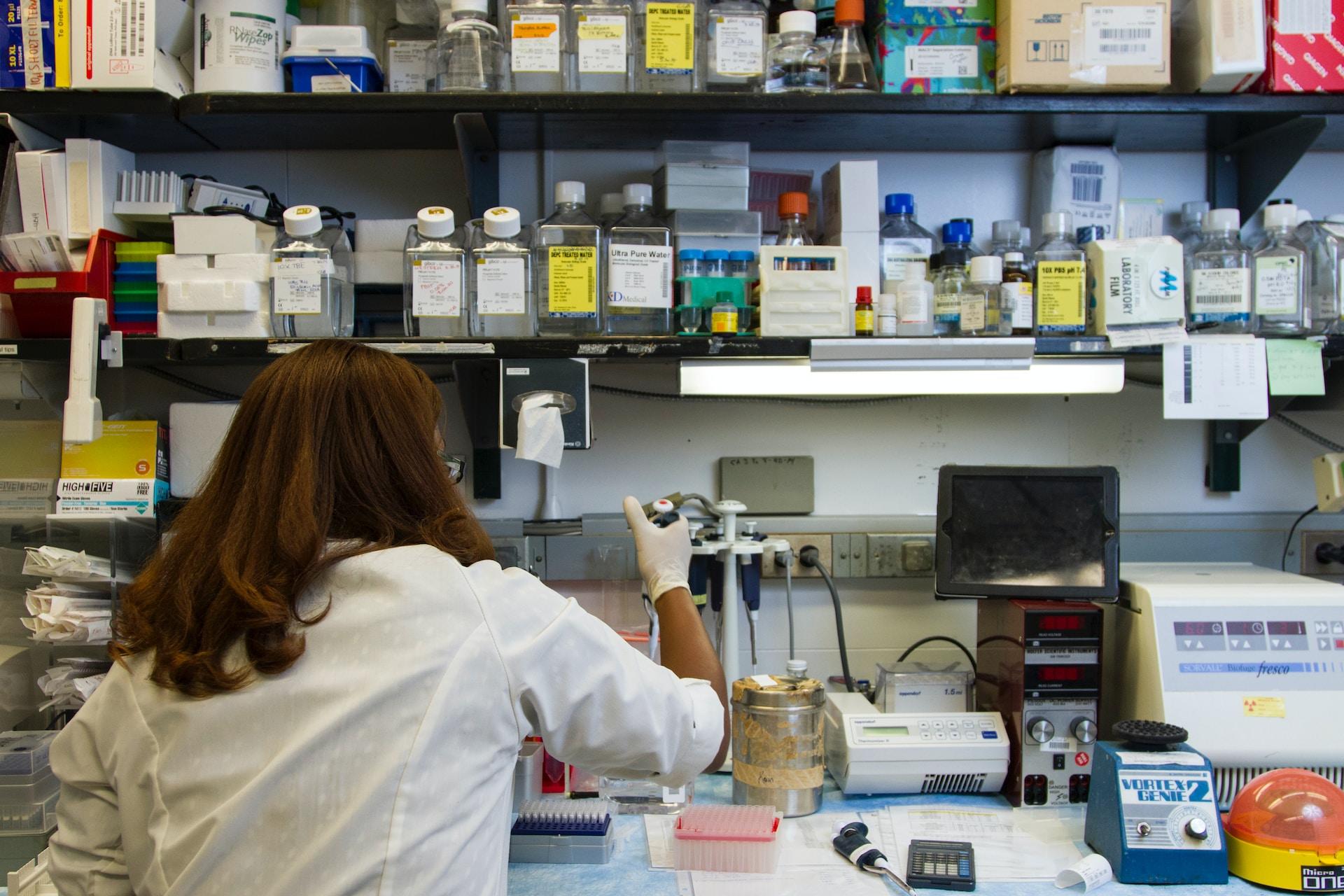Students take lots of exams throughout their academic careers. Pop quizzes and progress exams so teachers know how well their pupils have mastered each study unit. End-of-term exams help round out the grade books. Compulsory exams like the National Assessment Program (NAPLAN) help administrators compile learning statistics.
Do students get anything out of any quiz or exam? As yet, there's no clear response to that question and test-taking hasn't been suspended as the debate rages. But one set of exams does benefit students; the High School Certificate (HSC) series. Your HSC marks show you how well you performed on your exams and determine your Australian Tertiary Admissions Rank (ATAR).
You need a respectable ATAR to enrol in university. As you're taking HSC Chemistry, that's probably your plan, so you should know how to prepare for your exam and what revision resources to draw on. It would help to know how scores are calculated and if they're scaled. Read on for answers to these questions and more.

HSC Chemistry Exam Overview
Most exams, HSC or any other variety, are more a test of memory than a skills assessment but HSC Chemistry (and Physics) are not. In 2018, the New South Wales Education Standards Authority (NESA) rewrote these exams. Now, they measure how well students apply their understanding of chemistry.
With this revamped edition, examiners measure your responses against the questions' intent. For example, one might challenge you to identify a specific element, catalyst or result. Your response should only be long enough to name the element. Conversely, when you see 'explain' or 'assess' in the question, your responses should be more detailed.
Memorising troves of scientific facts and formulae will not help you because this paper tests how you've connected related chemistry concepts. It probes how well you can apply your knowledge of chemistry.
For example, a graph that displays a substance's concentration followed by an 'explain' question doesn't want you to explain the graph. That's where students lose points; they fail to interpret the query correctly.
Get assistance with your studies on Superprof with a chemistry tutor Central Coast.
HSC Chemistry Exam Structure
Your test booklet comprises 40 pages, covering information you studied in Modules 5 through 8 in no particular order. The first section contains 20 multiple-choice questions but they're not the type you can guess at. You will have to do some calculation or graph interpretation to arrive at the correct response. You have 35 minutes to complete this section for a maximum of 20 marks.
Section 2 contains 16 questions for a possible 80 marks; you're given 2 hours and 25 minutes to write your responses. These challenges are more elaborate and many of them have several parts. This is the section where you must pay attention to the question's intent. Look for words like 'describe', 'assess' and 'calculate' to help you determine what your response should be.
The examination booklet's last four pages list an assortment of formulas, constants and tables, including the table of periodic elements. You may use this data sheet as you work through your exam responses. NESA intends for this examination to be as close as possible to working in a scientific environment.
Your examiners give you the same access to reference materials that scientists in the field use, and you may use NESA-approved calculators, as well.
Your ordeal will last a little over three hours, start to finish. You'll have five minutes to read through the paper before you start working on it.
You should manage your time well so that you'll have enough to go over your responses before the finish bell rings.

How to Prepare for Your HSC Chemistry Exam
Keep in mind that HSC Chemistry doesn't follow the same principles as other examinations. It doesn't test your memory, it tests your ability to use the information you learned during your Chemistry courses. So a lot of go-to revision techniques like rereading a study module a week and going over your notes won't work for you this time.
You may build flashcard decks to keep every formula and scientific vocabulary fresh but they'll do little to advance your understanding of chemistry.
Earlier, we said this exam tests your ability to connect related chemistry concepts. Mind maps are the most effective tools to draw such connections. You might draw one mind map per syllabus dot point to highlight how each concept relates to others. Or you could create one map per study module and draw connecting lines from that perspective.
You probably took lots of notes during every lesson; include that information in your mind maps. Be sure to tie your remarks to the right syllabus dot point.
Also, make sure you keep a copy of your course syllabus close by as you create your maps, it too will help you organise your information.
We keep emphasising that this is not a standard examination so you might wonder if you should even bother with past papers and marking schemes. We'll go so far as to say they are indispensable to understanding this exam. You can connect each question to one of your mind maps and still use past papers as mock exams.
Also, you need to get familiar with the data sheet and connect all of that information to each study module.
Organising information into a set of visual tools satisfies the exam's objective of working with the information you picked up in each lesson. You only need to look at the periodic table of elements to see how vital organisation is in scientific study.
Creating mind maps to prepare for your exams trains your brain to the scientific mindset and builds a deep understanding of your courses' content.
Prepare even more with help from a chemistry tutor Canberra.

HSC Chemistry Exam Marks and Scaling
You can earn up to 100 points on your HSC Chemistry exam; each Section 2 question lists the number of possible points awarded. To find out how to score the maximum, you have to refer to the exam's marking schemes. There, examiners provide a breakdown of how each response is assessed and the criteria used to assign points.
Your HSC marks report on your individual performance. They do not compare your efforts to anyone else's. We might compare HSC marks to running a marathon: they reflect your running time. By contrast, your ATAR shows which position you came in - 1st, 5th or 25th.
Both sets of marks are important and they both depend on the raw score you earned on your papers. but they are calculated differently. NESA uses your raw score, the number of points you earned, to align them with performance bands. The Universities Admissions Centre (UAC) scales your raw marks to generate your ATARs.
Scaling is a rather complicated process that basically makes raw scores across every HSC subject comparable. For instance, fewer students sit Maths ex2 than Chemistry or Physics, so an 80 on the Maths paper is worth more than an 80 on the Chemistry or Physics paper. To give every subject equal weight, some are scaled down while others might be scaled up.
As an introduction to HSC Chemistry marking, this is all the information you need to gain a good understanding of how marks work. Scaling shouldn't be of any concern if you deliver solid results. Between 70 and 80 represents the typical point spread. If you aim for the higher end of that range, you'll do fine.

HSC Chemistry Exam Difficulty Level
By the time students begin Year 12 courses, they are rather jaded about the academic experience. For many, it's been a long trudge punctuated by periods of stress and pressure that always seem to surround exams. After that long slog, it's easy to see why some would prefer to sit 'easier' subjects. So it's not uncommon for high school seniors to ask how hard HSC Chemistry is.
Far be it for anyone to dismiss those concerns, especially as students' futures hang in the balance. So let us start with two reasons why this subject and its final examination defy such a classification. First, the course and its resultant ordeal are academically rigorous but you should expect no less at the level you are. Second, this course and its culmination are not only about scientific understanding.
For so long, the 'empty vessel' has been the prevailing educational theory. It implied that students are devoid of knowledge save for what every lesson might pour into them. Thus, many exams measure how much information the learner retained, not whether students had any understanding of it.
HSC is moving away from the 'empty vessel' theory and rote memorisation to pass exams. They've rewritten some of the most crucial curricula - Chemistry, Physics and Maths to allow students to show what they know. Not only that, these exams invite students to show they can use what they know. And these courses instil science skills along the way.
Nobody will fault you for asking if HSC Chemistry is hard but it would behove you to change 'hard' to 'challenging'. It's challenging to use new skills, especially at such a critical time in your academic journey.
But if you've trained yourself well in the scientific method, you have little to worry about concerning your exam.
Help ensure your own success by working with a chemistry tutor on Superprof!
Summarise with AI:















